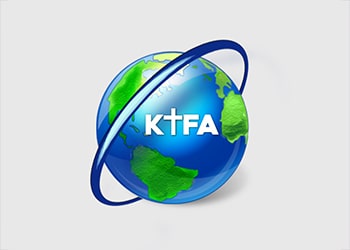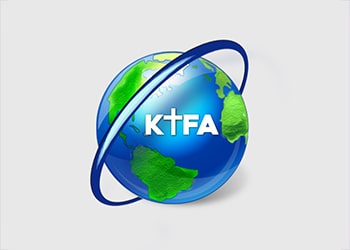Clare: A new economic crisis is on the horizon.. The war between the US dollar and the Chinese yuan in the Iraqi market
7/14/2024
In an “unsuccessful” move, as described by economic experts, the Central Bank of Iraq has stopped dealing in the Chinese yuan after the US Federal Reserve accused Iraq of “inflating remittances.
” While economic experts warned of the effects of this decision on the local market and its causing an increase in the exchange rate of the US dollar and an increase in inflation rates, which has negative repercussions on the economic situation of the Iraqi family, they presented 3 solutions to the Central Bank of Iraq to continue the flow of remittances to China.
In the latest Iraqi government move to stop dealing in the Chinese yuan, informed sources revealed to Shafaq News Agency, yesterday, Saturday, that the Governor of the Central Bank of Iraq, Ali Al-Alaq, is making an unannounced visit to the United States of America to discuss with officials in Washington the decision of the US Federal Reserve to stop Baghdad from dealing in the Chinese yuan.
The visit of the Governor of the Central Bank of Iraq, Ali Al-Alaq, to Washington coincides with a significant jump in the exchange rate of the dollar against the dinar, and more than two months after the visit of Prime Minister Mohammed Shia Al-Sudani to the United States.
“unsuccessful move”
Commenting on this decision, economic expert, Diaa Al-Mohsen, said, “The suspension of dealing in the Chinese yuan by the Central Bank of Iraq is an unfortunate step if we take into consideration that trade dealings with China exceed 65 billion dollars.”
Al-Mohsen added to Shafaq News Agency, “This decision will have a negative impact on the local market, and the demand for the dollar will increase, which means an increase in the exchange rate of the US dollar in the local market, which will increase inflation rates, which will have negative effects on the economic situation of the Iraqi family.”
The economist points out that “the suspension of dealing in the Chinese yuan by the Central Bank of Iraq is a matter that has negative effects on economic organizations in the world, and may lead to the severing of their trade and economic relations with Iraq, due to the confusion of the policies of the Central Bank of Iraq that are not stable for a long period.”
It is noteworthy that Iraq has strengthened its assets denominated in yuan through the Development Bank of Singapore to finance Iraqi trade and imports with China by about $12 billion annually.
Iraq has also moved to boost its assets in UAE dirhams and negotiated an increase in its euro-denominated assets to finance trade with the European Union, and Iraq has begun opening bank accounts in Indian rupees for a number of Iraqi banks.
“More political than economic”
For his part, the economic researcher, Ahmed Eid, believes that “the decision to stop dealing in the Chinese yuan is an American political decision more than it is an economic decision, according to the soft war that is being carried out under the influence of the strength of interests between the United States and China.”
Eid pointed out during his interview with Shafaq News Agency, “The decline of America’s military and commercial presence in Iraq left a security, economic and political vacuum that was controlled by Iran and China, which quickly filled that vacuum and seized the opportunity to penetrate Iraq, which is considered the fifth largest oil reserve in the world.”
He continues in his analysis, “Within the multiplicity of interests and the American-Iranian conflict over hegemony and influence in Iraq, China has infiltrated through its soft power, to control the general trade market and export its industries and products to Iraq at competitive prices.”
The economic researcher continues, “After the United States had been Iraq’s trading partner since its invasion of Iraq in 2003, it is no longer able to compete with China today, which has swallowed up a large part of the trade exchange with Baghdad, which has made America feel threatened.”
Eid explains at the end of his talk, “Most of the Iraqi supply and transportation companies are no longer in the hands of major traders, but rather are controlled by economic offices affiliated with militias and parties. These companies are trying, through various means, to smuggle dollars out of Iraq, or through cash exchange operations for the currency, which is what prompted the United States to continue imposing its sanctions on private companies and banks operating in Iraq.”
It is noteworthy that the Central Bank of Iraq has issued several decisions since the beginning of 2023 that would maintain the stability of the general monetary and economic situation and confront the risks of fluctuations in the exchange rate of the Iraqi dinar against the US dollar, in addition to facilitating import and export operations by opening new horizons with international banks, including Chinese banks.
Among the decisions of the Central Bank of Iraq is to enhance the balances of Iraqi banks that have accounts with Chinese banks in Chinese yuan, as dealing in yuan directly without the mediation of the US dollar contributes to facilitating and accelerating financial transactions, and will reduce import costs and protect against the risks of fluctuating exchange rates within Iraq.
3 options for the Central Bank of Iraq
In turn, the economic expert, Mustafa Hantoush, says, “The Federal Reserve’s accusation of Iraq of (inflating remittances), i.e. transferring money in exchange for the entry of goods at a value less than the value of the transferred money or the non-entry of goods at all, here the Central Bank was unable to answer or defend because the Central Bank has not linked the Central Bank’s remittances to the goods that enter through the border crossings like all countries of the world for 20 years. In addition to that, the absence of this linkage causes a loss of no less than 5 billion dollars annually due to the failure to collect real (customs and taxes), and international accusations against Iraq of money laundering and currency smuggling.”
Hantoush added to Shafaq News Agency, “After this accusation from the Federal Reserve and the inability of the Central Bank to defend itself, there are several options before the Central Bank of Iraq, including quickly establishing a link between remittances and border crossings, contracting with a new company to flow remittances from Iraq to China (within the Central Bank), and transferring dollars instead of Chinese yuan through Iraqi banks owned by (foreign investors) that have accounts in (Citibank) and (JP Morgan), which may cause those banks to control 90 percent of the currency window, and a near halt to the work of the Iraqi banking system.” LINK
************
Clare: The framework gives the Sunnis the last chance to name the parliament speaker: no postponement after that
7/14/2024
The Coordination Framework, which brings together the ruling Shiite political forces in the country, set today, Sunday, July 20, as the date to decide on naming a new speaker for the Iraqi parliament, stressing that after this date, the matter will be left to the members of the House of Representatives to choose for themselves who they see as suitable for this position.
The leader in the framework, Aid Al-Hilali, told Shafaq News Agency, “The Coordination Framework forces gave the Sunni political forces a deadline until July 20, i.e. after the end of the Ashura rituals, to decide their position and agree among themselves on the file of electing the parliament speaker.”
He added that “if the Sunni political forces do not agree among themselves, a session will be held to elect the Speaker of the House of Representatives, in the first session of the legislative term, and the matter will be left to the representatives, and whichever candidate gets the highest number of votes will be the new president,” stressing that “there is no postponement in this, as the framework forces want to resolve the issue quickly, as it has had a negative impact on legislative and oversight work.”
Since the Federal Supreme Court (the highest judicial authority in Iraq) decided in November 2023 to terminate the membership of former Parliament Speaker Mohammed al-Halbousi, the political parties and forces have not been able to name a new Parliament Speaker due to the differences between them. LINK





